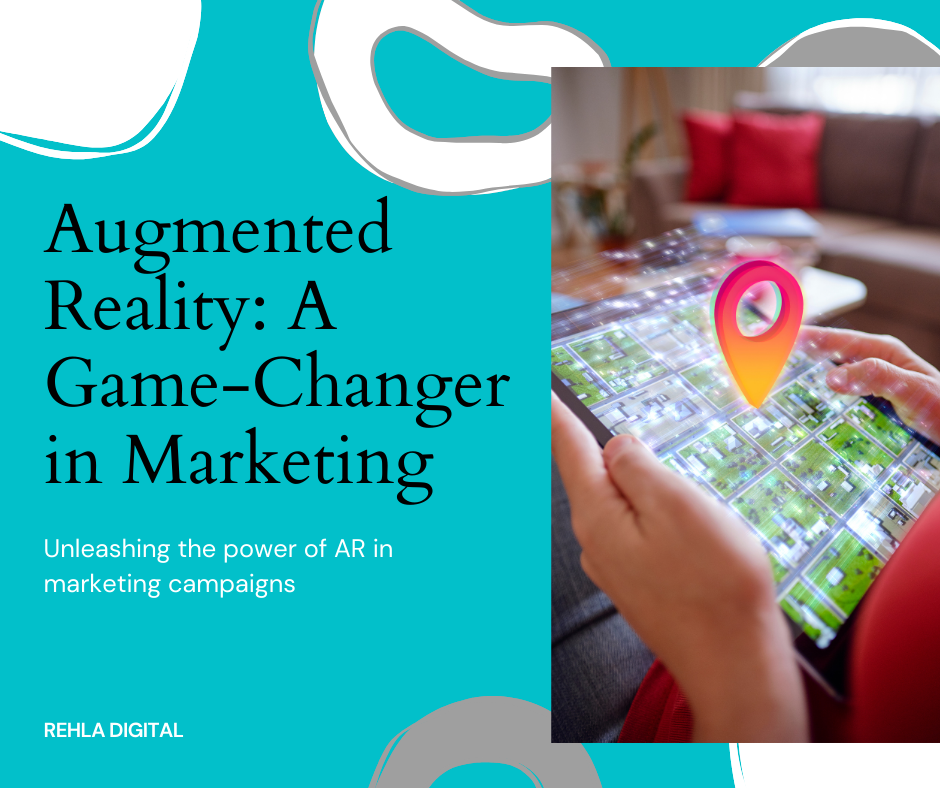Using Augmented Reality (AR) in Digital Marketing
Augmented Reality (AR) is revolutionizing digital marketing by providing immersive experiences that bridge the gap between the digital and physical worlds. AR enhances real-world environments with digital overlays, creating interactive and engaging experiences for users. As brands seek innovative ways to capture consumer attention, AR has emerged as a powerful tool in the digital marketer’s arsenal.
The Rise of Augmented Reality
The rapid adoption of smartphones and advancements in AR technology have made it accessible to a broad audience. AR applications have moved beyond novelty to practical use cases in retail, advertising, and customer engagement. The success of AR applications like Pokémon GO and Snapchat filters has showcased the potential of AR to capture and retain user interest.
Benefits of AR in Digital Marketing
1. Enhanced Customer Experience
AR provides customers with an interactive and engaging way to experience products and services. For instance, furniture retailers like IKEA use AR apps to allow customers to visualize how furniture will look in their homes before making a purchase. This not only enhances the shopping experience but also reduces the likelihood of returns.
2. Increased Engagement and Interaction
AR campaigns encourage user interaction, making marketing messages more memorable. Interactive AR ads can lead to higher engagement rates compared to traditional ads. For example, Pepsi’s AR bus shelter campaign created an immersive experience for commuters, blending real-world environments with digital elements, resulting in viral success and increased brand awareness.
3. Personalized Marketing
AR allows for personalized marketing experiences. Brands can create AR experiences tailored to individual preferences and behaviors. This personalization can drive higher conversion rates as customers feel more connected to the brand. Makeup brands like Sephora use AR to offer virtual try-ons, enabling customers to see how products look on their faces before purchasing.
Applications of AR in Digital Marketing
1. Virtual Try-Ons
AR-powered virtual try-ons are transforming the fashion and beauty industries. Consumers can use their smartphones to see how clothing, accessories, or makeup products look on them without physically trying them on. This not only enhances convenience but also helps brands reduce return rates.
2. Interactive Advertisements
AR advertisements are more engaging than traditional ads. They invite users to interact with the brand in a playful and immersive way. For instance, AR-enabled print ads can come to life through a smartphone camera, offering additional content and interactive features that traditional print ads cannot provide.
3. Location-Based AR Experiences
Brands can create location-based AR experiences that engage customers in specific locations. Retailers can use AR to guide customers through stores, provide additional product information, or offer exclusive in-store promotions. This enhances the in-store experience and encourages foot traffic.
Challenges and Considerations
While AR offers numerous benefits, there are challenges to consider. Developing high-quality AR experiences can be costly and require specialized skills. Additionally, marketers must ensure that AR experiences are accessible and user-friendly to avoid alienating customers who are less tech-savvy.
Future of AR in Digital Marketing
The future of AR in digital marketing is promising. As technology advances, AR experiences will become even more realistic and immersive. The integration of AR with other technologies, such as artificial intelligence and machine learning, will enable even more personalized and engaging marketing experiences. Brands that embrace AR will be well-positioned to captivate and retain the attention of their audiences in an increasingly competitive digital landscape.
Augmented Reality is transforming digital marketing by offering innovative ways to engage and interact with consumers. From enhancing customer experiences to creating personalized marketing campaigns, AR provides a unique and immersive way for brands to connect with their audiences. As AR technology continues to evolve, its impact on digital marketing will only grow, offering exciting possibilities for brands willing to embrace this cutting-edge technology.
By leveraging AR, brands can create memorable and engaging experiences that stand out in the crowded digital marketplace. Whether through virtual try-ons, interactive advertisements, or location-based experiences, AR offers a powerful tool for marketers looking to innovate and capture consumer attention.
-written by Farhat Rumaanah

